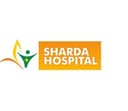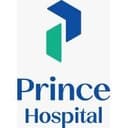PhD in Reproductive Medicine and Surgery
OR
Prepared by Docthub Courses Team ∣
Last updated on 03 Sep 2025
Overview
A PhD in Reproductive Medicine and Surgery focuses on advanced research in fertility, reproductive health, and surgical techniques. It belongs to the field of obstetrics and gynecology, specifically addressing issues like infertility, assisted reproductive technologies, and surgical interventions. The course typically lasts 3-5 years, combining theoretical knowledge with practical research. Students explore topics such as reproductive endocrinology, genetics, and surgery.

Table of Content
What is a PhD in Reproductive Medicine and Surgery?
It is a very advanced research-based doctoral program with a concentration in the scientific and clinical fields of fertility, temperature-based endocrinology, assisted reproductive technologies (ART), and various surgical procedures concerning reproductive health and fertility issues. The program is suitable when considering postgraduates in medicine wishing to make a contribution in the field of revolutions in reproductive care, IVF technologies, and preservation of fertility.
It equips researchers, fertility specialists, academic professionals, and clinicians in such a way that they can contribute to scientific knowledge, drive a reproductive clinic, or practice in the policy and research development in reproductive health.
Highlights
Particulars
PhD in Reproductive Medicine and Surgery
Course Type
Doctorate (PhD)
Duration
3 to 5 years
Eligibility
MD/MS/DNB/MSc (Reproductive Biology or equivalent)
Admission Process
Entrance + Interview + Research Proposal
Fees
₹1,50,000 – ₹4,00,000 per year
Colleges in India
- AIIMS
- JIPMER
- Manipal
- SRM
- KMC
- ICMR-affiliated institutions
- CMC
- IIRRH
Job Roles
- Fertility Researcher
- Fertility Scientist
- Director of IVF or ART Centers
- Consultant in Reproductive Surgery
- Academic Faculty
- Policy Advisor
- Medical Affairs Expert
Eligibility
Candidates must have completed:
MD/MS in Obstetrics & Gynecology / Reproductive Medicine
Or MSc in Reproductive Biology / Biotechnology with relevant specialization
MCh in Urology or related surgical branches (for surgery-focused research)
Minimum 55% aggregate marks in post-graduation
Some institutes require a NET/CSIR qualification
Fees
The fees are ₹1.5 to ₹4 lakhs per year
Funded fellowships and stipends are available through ICMR, UGC, or DBT. Also, some institutions provide stipends up to ₹35,000 per month for full-time scholars.
Who Should Do This Course?
Fertility specialists and gynecologists want to deepen research expertise
Doctors involved in IVF, ART, or reproductive surgery
MSc postgraduates in reproductive biology seeking academic or research roles
Doctors interested in becoming faculty or researchers in medical colleges
Why Study This Course?
There is great demand for evidence-based research in reproductive technologies.
Chance to contribute to IVF innovations, stem cell therapy, and ART policy.
Opportunities to collaborate and publish high-impact content with others across the globe
Required for academic faculty or director roles in IVF and research institutions
Entrance Exam
Institutional entrance test
Some universities accept NET/JRF or GATE scores
Followed by an interview and submission of a research proposal
Admission Process
Apply online via the university or research center portal
Appear for the entrance exam (if applicable)
Submit research interest statement/proposal
Attend a personal interview with the research guide
Final selection based on merit and supervisor availability
Syllabus:
Semesters/Years
Topics Covered
Year 1
Research Methodology, Bioethics, Biostatistics, ART, Endocrinology
Year 2–5
IVF success rates, Ovarian Stimulation, IUI, Embryology, Surgery, Elective Research, Stem Cell Therapy, PCOS, Male Infertility, Reproductive Genetics, Endometriosis
Practical / Project Internship
Regular journal clubs, research presentations, lab rotations, and international paper submission
Scope
Lead role in IVF clinics and ART centers
R&D in fertility drugs, cryopreservation, and embryology labs
Academic – medical colleges and teaching hospitals
Contribution to public health policy on fertility and reproductive rights
International fellowships and collaborations
Further Study Options
Fellowship in Clinical Embryology or Andrology
Postdoctoral Research in Reproductive Endocrinology or Molecular Reproduction
Short courses in Biostatistics, Advanced Imaging, or Medical Writing
International IVF conferences and publications
Career Opportunities after This Course
- Fertility Researcher
- Fertility Scientist
- Director of IVF or ART Centers
- Consultant in Reproductive Surgery
- Academic Faculty
- Policy Advisor
- Medical Affairs Expert
Salary
Designation
Salary Range
Junior Research Fellow (JRF)
₹30,000 – ₹35,000/month stipend
Fertility Researcher / IVF Scientist
₹6 – ₹12 LPA
Professor / Senior Consultant
₹12 – ₹25 LPA
International postdoc/researcher
₹30+ LPA (UK, USA, EU)
Explore colleges for this course

Explore this course by location..
by States
by Cities
Related Job Roles
Related Job Vacancies
View All 5 Jobs

FAQS
What is PhD in Reproductive Medicine and Surgery?
PhD in Reproductive Medicine and Surgery is a graduate research program whose research area is concentrated on the treatment of infertility, reproductive endocrinology, assisted reproductive technologies (ART), and surgical intervention. It implies scientific research into such issues as IVF, PCOS, embryo development, and reproduction genetics. The program will encourage evidence-guided developments in reproductive health and equip candidates to become professionals in surgical and non-surgical solutions to fertility problems.
What is the qualification for PhD in Reproductive Medicine and Surgery?
It will require an MD/MS in Obstetrics and Gynecology, MSc in Reproductive Biology, or others, such as DNB or MBBS with a master's in a related field. Having undergone previous clinical or lab research experience is an added value in the admission process.
What is the scope of PhD in Reproductive Medicine and Surgery?
A PhD in Reproductive Medicine and Surgery is wide-ranging, multidisciplinary. The graduates may rise to a level where they work as lead researchers, IVF specialists, or medical university professors. They may run the laboratories of ART; they may participate in the creation of the drugs of fertility medicine, or they may collaborate with organizations in the sphere of global health.
How long does it take to do PhD in Reproductive Medicine and Surgery?
PhD in Reproductive Medicine and Surgery typically lasts for 3-6 years as per the university’s guidelines, projects, dissertations, and theses submissions.
Related Course titles

Qualifications
DM Reproductive Medicine
FNB Reproductive Medicine
MCh Reproductive Surgery
FIRMH (Fellowship in Reproductive and Maternal Health)
FRM (Fellowship in Reproductive Medicine)
DNB Obstetrics and Gynecology


